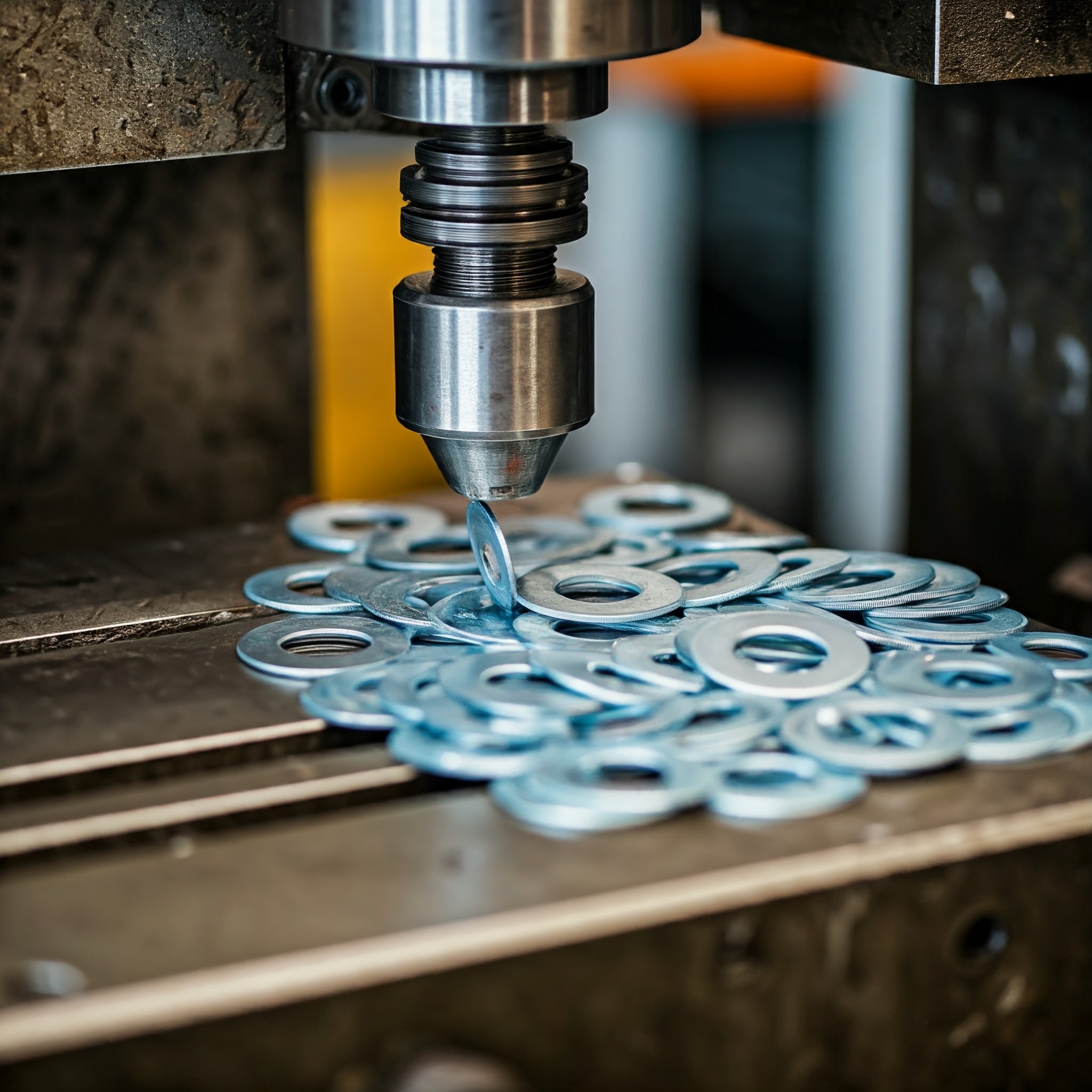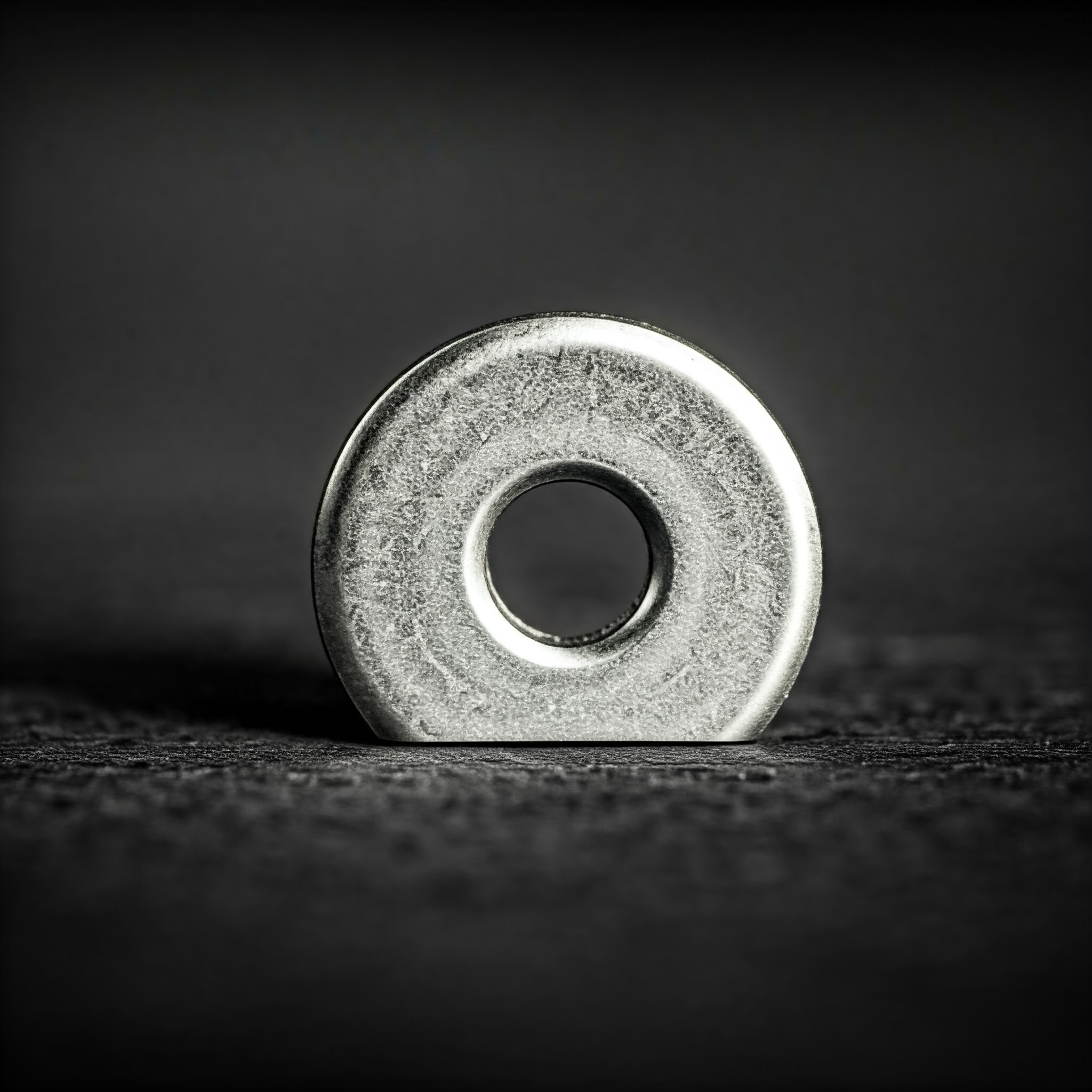Tab Washers: A Comprehensive Guide to Their Uses and Benefits

Have you ever dealt with machinery or structures where bolts just don’t stay put? Frustrating, isn’t it? That’s where tab washers step in as unsung heroes. Whether you're an engineer, mechanic, or a DIY enthusiast, these small yet mighty components can save you a world of hassle.
And while we’re talking washers, let’s not forget the wide variety available, like shim washers, spring lock washers, industrial washers, and even fender washers. Each type serves a unique purpose, and this guide will help you understand how tab washers stand out.
Table of Contents:
- What Are Tab Washers?
- How Do Tab Washers Work?
- Key Uses of Tab Washers
- Benefits of Using Tab Washers
- Types of Tab Washers
- How to Choose the Right Tab Washer
- Installing and Maintaining Tab Washers
- Specialized Applications of Tab Washers
- Expert Tips for Using Tab Washers
- Conclusion
What Are Tab Washers?
Tab washers, also known as lock washers, are specialized fasteners designed to prevent nuts and bolts—like foundation bolts or stud bolts—from loosening due to vibration or rotational forces.
- Material: Typically made of stainless steel shims, brass shim sheets, or durable metals.
- Design: They feature one or more tabs that can be bent to secure the fastener in place.
- Sizes: Available in various diameters, suitable for shim washer manufacturers and custom projects.
How Do Tab Washers Work?
The magic of tab washers lies in their tabs. After placing the washer—like a wedge lock washer or square washer—between the bolt head (or nut) and the surface, you bend one or more tabs to:
- Lock Against the Fastener: Prevent the bolt or nut from rotating.
- Anchor to a Surface: Securely attach to a stationary part of the assembly, much like a hex washer or self-locking washer.
This dual-action ensures the fastener stays put, even under intense vibrations, much like how a sealing washer ensures a leak-proof seal.
Key Uses of Tab Washers
You’ll find tab washers used across various industries, often in combination with other essential components like foundation bolts or u clamps. Common applications include:
- Automotive: Keeps bolts secure in engines and transmissions.
- Aerospace: Vital for safety in high-stakes environments.
- Manufacturing: Often paired with machined washers to secure heavy machinery.
- Construction: Works alongside anchor bolt manufacturers for structural integrity.
- Marine Applications: Stands up to corrosion and vibration in boats and ships.
For DIY enthusiasts, these washers, along with precut shims and shim sheets, are a go-to for precision and durability.

Benefits of Using Tab Washers
Why should you consider tab washers for your next project? Let’s break it down:
- Prevents Loosening: Perfect for high-vibration environments like engines or turbines.
- Enhances Safety: Reduces the risk of fastener failure in applications requiring stud bolts or foundation j bolts.
- Cost-Effective: An affordable alternative to more complex solutions like conical washers or external tooth lock washers.
- Corrosion Resistance: Stainless steel options, akin to ss shim plates, are ideal for outdoor use.
- Ease of Use: Simple to install and maintain, much like a countersunk washer or a square washer.
Types of Tab Washers
Just like the variety you find in washer manufacturers catalogs, tab washers come in different types:
- Single Tab Washers: Perfect for standard fastening needs.
- Double Tab Washers: Provide added stability, similar to spring lock washers.
- Internal Tab Washers: Tabs positioned on the inner diameter, ideal for compact spaces.
- External Tab Washers: Tabs on the outer diameter, often used alongside u bolts manufacturers.

Installing and Maintaining Tab Washers
Here’s a quick guide to effectively use tab washers:
Installation
- Place the washer between the fastener and the surface.
- Tighten the bolt or nut securely—whether it’s a foundation j bolt or a stud bolt.
- Bend the tab(s) against the flat side of the fastener or onto the assembly surface.
Size:
- Match the washer’s inner diameter to your bolt size.
- For heavier loads, consider shim washer manufacturers for custom solutions.
Application Environment:
- Use heavy-duty washers for industrial settings.
- Lightweight options work well with foundation bolts in non-critical applications.
Tab Configuration:
- Single-tab for basic needs.
- Double-tab for extra security, similar to machined washers.
How to Choose the Right Tab Washer
When selecting tab washers, consider the following:
Material:
- Choose stainless steel shims for rust resistance.
- Opt for brass shim sheets for projects requiring conductivity.
Size:
- Match the washer’s inner diameter to your bolt size.
- For heavier loads, consider shim washer manufacturers for custom solutions.
Application Environment:
- Use heavy-duty washers for industrial settings.
- Lightweight options work well with foundation bolts in non-critical applications.
Tab Configuration:
- Single-tab for basic needs.
- Double-tab for extra security, similar to machined washers.
Installing and Maintaining Tab Washers
Here’s a quick guide to effectively use tab washers:
Installation
- Place the washer between the fastener and the surface.
- Tighten the bolt or nut securely—whether it’s a foundation j bolt or a stud bolt.
- Bend the tab(s) against the flat side of the fastener or onto the assembly surface.
Maintenance
- Inspect periodically for wear, much like you would with shim sheet metal or precut shims.
- Replace any deformed or corroded washers to maintain safety and efficiency.

Specialized Applications of Tab Washers
- In Construction:
In the construction industry, foundation bolts are critical for anchoring structures. However, without a secure locking system, these bolts can loosen over time. Pairing them with tab washers or j type foundation bolts ensures long-term stability.
- In Precision Equipment:
For delicate assemblies, like those in electronics or instrumentation, precision is key. Shim washers, precut shims, and shim sheets are often used for fine adjustments, while tab washers add an extra layer of security.
- In Industrial Settings:
Heavy-duty machines often experience vibrations that can loosen fasteners. Using industrial washers, wedge lock washers, or self-locking washers in conjunction with tab washers ensures that machinery runs smoothly.
Expert Tips for Using Tab Washers
- Match Material Properties: If you’re using stainless steel bolts, pair them with stainless steel shims or washers to avoid galvanic corrosion.
- Check Compatibility: Ensure the washer fits snugly with the bolt or nut. For example, a countersunk washer is perfect for bolts with countersunk heads.
- Use the Right Tools: While tab washers can be bent with simple tools like pliers, ensure the tabs are bent securely to avoid slippage.
- Inspect Regularly: Periodically check washers for wear, especially in high-vibration setups involving industrial washers or machined washers.
Conclusion
Tab washers may not grab the spotlight, but their role in securing fasteners is indispensable. They’re a cost-effective, reliable solution for projects involving foundation bolts, anchor bolts, or even precision items like shim washers.
Whether you’re working on industrial equipment or a small DIY project, understanding the uses and benefits of tab washers—along with other options like wedge lock washers and external tooth lock washers—can save you time, money, and frustration.
About Sachin Shim
Our range of shims includes metal, machine, industrial, precision, adjustable, machinery, engineering, custom, and alignment shims. These shims are designed for various applications, such as machinery alignment, fine adjustments in industrial-grade machines, engineering projects requiring steel shims, heavy-duty machinery requiring versatile metal shims, aerospace applications demanding precision stainless steel shims, automotive use requiring adjustable aluminum shims, precision engineering projects using high-quality brass shims, construction applications requiring durable plastic shims, specialized machinery needing customized shim solutions, and manufacturing processes requiring fine-tuning shims for precise alignment and accurate machine setup and leveling.
Author
Meet Seema, our expert author in industrial materials with a deep understanding of Shim Sheet Metal. With years of experience, Seema brings valuable insights and expertise to this guide, making them a trusted source for all things related to Shim Sheet Metal. Join us as we delve into the art of Shim Sheet Metal with Seema leading the way.
List Other similar blogs







